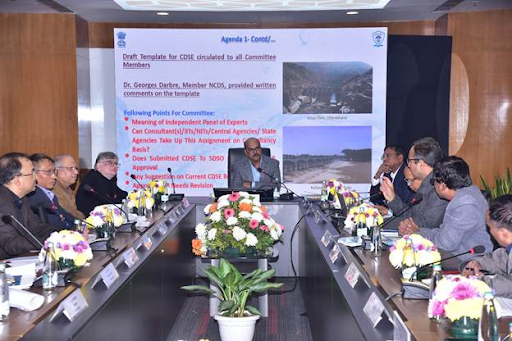




Disclaimer: Copyright infringement not intended.
The World Cities Report 2024 provides a far-reaching analysis of the current and expected climate impacts on different regions and cities.
More than two billion people currently living in cities could be exposed to an additional temperature increase of at least 0.5 degrees Celsius by 2040, and cities overall need an estimated $4.5 to $5.4 trillion investment per year to build and maintain climate-resilient systems, yet current financing stands at just $831 billion — only a fraction of the required amount.
|
Released By |
UN-Habitat during the twelfth session of the World Urban Forum. |
|
Key Focus Areas |
Climate change challenges in urban areas. Rapid urbanization. Funding shortfall for resilient urban infrastructure. |
|
Main Findings |
If current trends continue, over 2 billion urban residents could experience an additional temperature increase of 0.5°C by 2040. Current funding for resilient urban infrastructure is severely inadequate, with cities needing $4.5 to $5.4 trillion annually but receiving only $831 billion. “Green gentrification” has displaced low-income communities in some cases, driving up property values and worsening conditions for vulnerable populations. |
|
Funding Requirements |
Estimated $4.5 to $5.4 trillion annually to develop and maintain climate-resilient urban systems. Currently, only $831 billion is being allocated annually – a fraction of the needed amount |
|
Perspective on Urban Areas |
Cities should be viewed as part of the climate solution, not just part of the problem. Emphasizes knowledge-driven action as foundational to effective climate strategies. Insights from the report are expected to shape future frameworks, such as the upcoming IPCC Special Report on Climate Change and Cities, and influence preparations for COP29. |
|
Recommendations |
Stronger urban focus in climate strategies. Climate action should align with broader development goals such as poverty reduction, improved public health, and better services Cross-sector integration of climate considerations to support sustainable, effective investments in cities. Climate action should be participatory and community-led. Calls for locally appropriate solutions that cater to unique resident needs, especially in informal settlements and low-income neighborhoods that are often excluded from decision-making processes. |
|
Significance for Future Climate Policy |
The report highlights the importance of integrating urban perspectives into climate discussions. Aims to influence global climate agendas, including preparations for COP29, by advocating knowledge sharing and equitable climate action. |
“Knowledge is the cornerstone of effective climate action, and the insights we gather today are critical in shaping future frameworks like the forthcoming IPCC Special Report on Climate Change and Cities”.
The WUF was established in 2001 by the United Nations to address one of the most pressing issues facing the world today: rapid urbanization and its impact on communities, cities, economies, climate change and policies.
Source:
|
PRACTICE QUESTION Q.Discuss the key challenges that cities face in building climate-resilient systems. What strategies should be adopted to ensure sustainable urban development and equitable climate action? (250 words) |





© 2026 iasgyan. All right reserved